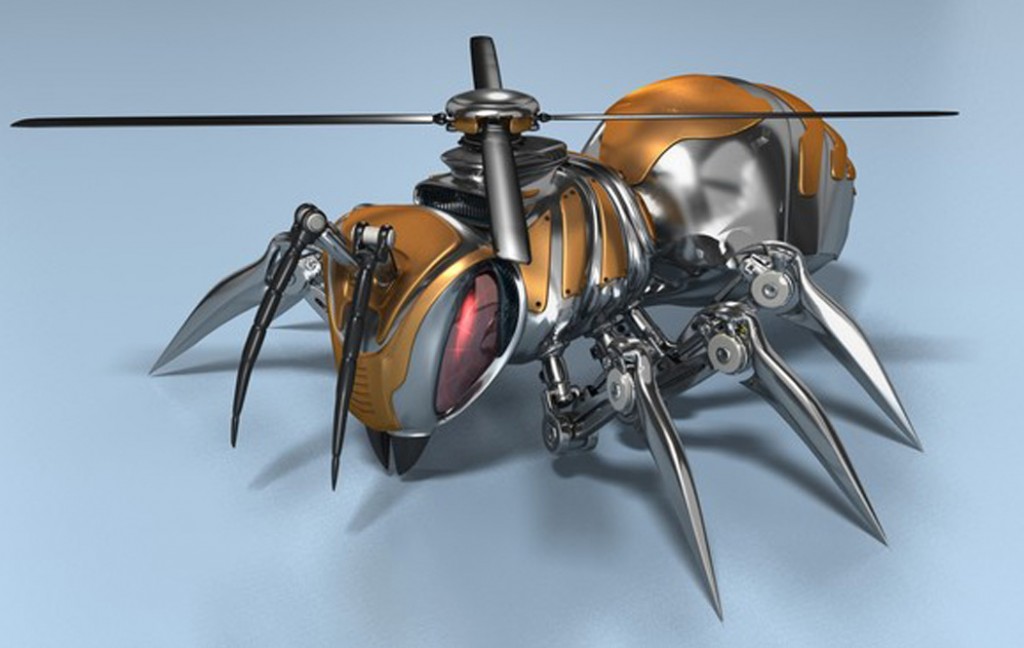
What do honeybees, computer operating systems and software have in common? They all suffer from the same problem. Its a product of our desire for minimal effort with large returns. Today’s industrial agriculture and the computer infrastructure are dominated by a very dangerous monoculture. It makes us vulnerable, lazy, and stagnant.
Nature is constantly trying to “pick” the lock of a monoculture!
Monoculture is the agricultural practice of producing or growing a single crop or plant species over a wide area and for a large number of consecutive years. It is widely used in modern industrial agriculture and its implementation has allowed for large harvests from minimal labour. Agricultural monocultures can lead to the quicker spread of pests and diseases, where a uniform crop is susceptible to a pathogen. To put it simply, if every field of corn we grow is identical, when a pest or disease finds a vulnerability to that corn then every field of corn in the country could be devastated. Nature is constantly trying to “pick the lock” and as soon as it does that species is vulnerable. Nothing is static in nature, the world of bio-diversity is a constant struggle, a constant evolution of life. Agricultural monocultures do not naturally occur because they are extremely vulnerable.
In computer science, a monoculture is a community of computers that all run identical software. All the computer systems in the community thus have the same vulnerabilities, and, like agricultural monocultures, are subject to catastrophic failure in the event of a successful attack. This concept is significant when discussing computer security and viruses. In particular, Microsoft is a monoculture, since a majority of the overall number of workstations connected to the Internet are running versions of the Microsoft Windows operating system, many of which are vulnerable to the same attacks. But it is not limited to Microsoft. As Apple becomes a larger player in the market they too can become vulnerable. If the iOS become the dominant mobile operating system it is just as vulnerable as the Microsoft operating system. This is not to say that the iOS has the same vulnerabilities technically speaking. Rather, it has the potential of becoming a monoculture, which in itself comes with vulnerabilities.
We have engineered crops to be easy to plant, grow and harvest. We have changed life forms to better conform to our mechanized needs. This allowed for more automation and thus less effort for greater results. The side effect is a loss of knowledge, talent, and expertise. We become a people who only know when to turn on the irrigation systems and when to run the satellite navigated harvesting machines. The same can be said for the average person who’s job is centered around the personal computer. People only know what to click on but they have no idea why they are doing it. The technological advances have made it possible to do more with fewer people. The side effect is the same as in the agricultural field, a loss of knowledge, talent, and expertise.
Monocultures effect systems all around them. One of the suspected causes of CCD, Colony Collapse Disorder is the forcing of a monoculture on the honey bee. For millions of years the honey bee has had a constantly changing and evolving diet. Today we force them to build their hives in specifically sized boxes designed for ease of mechanization. We pre-print the size of the honeycomb they build for better efficiency. We then force them into areas where the only source of food is a genetically modified monoculture of plants. All of which is wholly un-natural and without precedence in human history at the scale we are doing it today.
We have become dependent on our technology and the honey bee for our very existence. The honey bee is responsible for every third bite of food we eat. Most every business and industry is wholly, or partly dependent on a computer. Think about your job, what would your place of work do if it had no computers or internet. Could you function without them?
We must foster a deeper understanding of technology. We as a species, and as individuals need to drop our fear of technology. We should be fearful of a too large, too smooth computer monoculture. Our emphasis should not be on who is the biggest computer company or who is making the most money. The emphasis should be on how much variety and diversity is out there. Allowing lots of different types of systems to work together should be our goal and not converting every machine to the same system. We should follow the example in nature, constant change and growth.
We should not all be eating the same potato or using the same operating system.